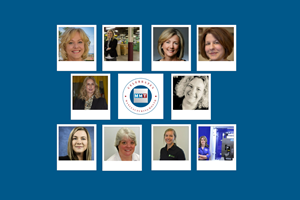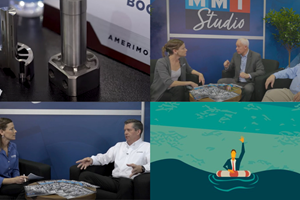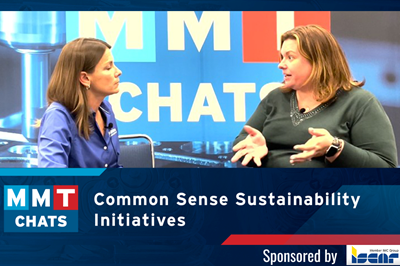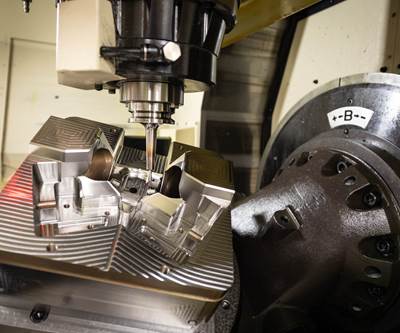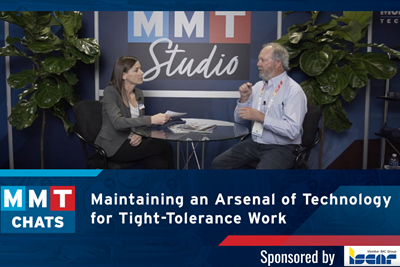Share
Read Next
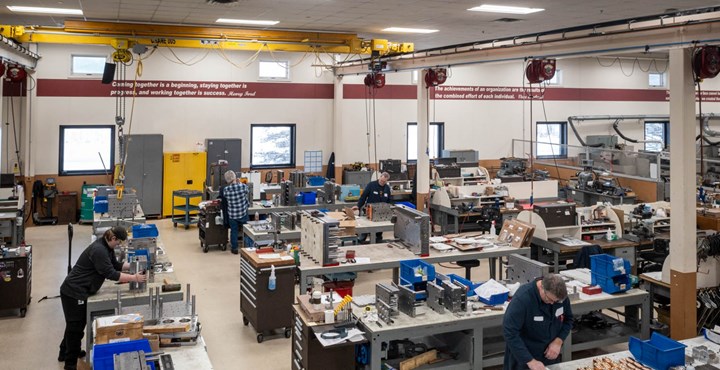
Velosity represents a family of companies specializing in mold building, injection molding, precision machining and custom contract manufacturing. The team embraces the challenges and opportunities of environmental, social and governance (ESG). Photo Credit, all images: Velosity
In recent years, there has been a noticeable shift in manufacturing toward environmental, social and governance (ESG) considerations. Manufacturers are no longer evaluated solely based on their production capabilities or machinery; today, they are also under scrutiny for their approach to sustainability and social responsibility. As Velosity CEO David Hemink emphasizes, “The marketplace now votes with its dollars, and ESG compliance is becoming a pivotal factor in choosing business partners.”
Velosity, a new brand launched in 2023 as a private equity-owned asset under Graham Partners in Philadelphia, represents an entire family of companies — Teamvantage, MMD Medical, Custom Mold & Design, CMD Precision and Paradigme Engineering — offering a full range of services, including mold building, injection molding, precision machining and custom contract manufacturing.
Together, these entities form a comprehensive, vertically integrated solution set, serving 130 companies and shipping products to more than 175 countries worldwide across the medical device, pharmaceuticals, life science, healthcare, defense and industrial sectors. It has more than 550 dedicated team members across multiple facilities in Minnesota, boasting an average of 25 years of experience, and over 250,000 square feet of space.
In an ever-changing regulatory landscape, particularly in the highly regulated medical device and defense sectors, Velosity remains vigilant, adapting to new requirements, which include ESG. Here, Hemink provides valuable insights into how Velosity is embracing the challenges and opportunities ESG presents.
“ESG is now the ‘ticket to the dance,’ and companies that fail to embrace ESG risk losing out in a rapidly changing marketplace.”
Understanding ESG in Business
As Hemink points out, the business landscape is evolving rapidly, with significant shifts in how stakeholders evaluate companies. ESG commitments are increasingly scrutinized, with stakeholders, including shareholders and consumers, demanding clear ESG frameworks from the companies they partner with or invest in.
“ESG is now the ‘ticket to the dance,’ and companies that fail to embrace ESG risk losing out in a rapidly changing marketplace,” Hemink says.
According to Hemink, ESG signifies a comprehensive approach to evaluating a company’s impact on the environment, commitment to social issues and adherence to governance principles. This integrated framework has far-reaching implications for businesses across various industries, including manufacturing.
“For example, customers now demand greater transparency regarding consumption and waste management practices,” Hemink says. This has led the company to recognize the importance of ESG and the need to adopt a sustainable approach to meet evolving market expectations.
Hemink outlines five compelling reasons why businesses, including mold builders, should prioritize ESG:
- Regulatory Compliance and Liability Risk: Regulatory requirements are becoming more stringent, and companies face increasing liability risks. High-profile manufacturing pollution cases and multi-billion-dollar fines for environmental damages, highlight the significance of ESG in managing regulatory compliance and liability.
- Operational Excellence: ESG initiatives drive operational excellence by promoting sustainable practices that lead to cost savings, improved resource management and reduced environmental impact.
- Attracting Talent: In a competitive job market, ESG can be a powerful tool for attracting and retaining talent. Employees increasingly seek employers who are committed to ethical and sustainable business practices.
- Greenhouse Gas Management: ESG frameworks compel companies to manage their greenhouse gas emissions responsibly, which not only benefits the environment but also mitigates financial and reputational risks.
- Cost Savings: ESG practices need not be cost-prohibitive. In fact, companies can realize substantial cost savings through energy-efficient solutions, waste reduction and employee retention, all while gaining a competitive edge.
Opportunities and Accomplishments
Implementing ESG programs requires a deep commitment that goes beyond mere lip service. “Companies must be willing to invest in sustainability and provide evidence of their efforts,” Hemlink says. Here are four key areas that helped form the basis of Velosity’s sustainability strategy.
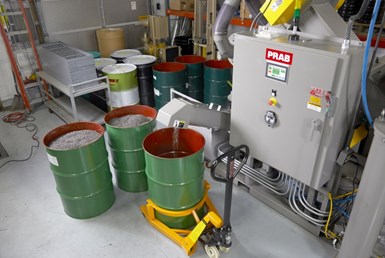
Velosity recycles cutting oils in its machining department and reduces approximately 75% of the cutting oil consumption (~6,000 gallons) with a PRAB chip wringer/shredder system.
- Material Selection: Businesses must carefully choose materials that minimize environmental impact, are ethically sourced and can be recycled or disposed of responsibly.
- Energy-Efficient Manufacturing: Sustainable manufacturing processes not only reduce a company’s carbon footprint but also lead to significant cost savings. For Velosity the challenge of managing its large facility, which spans 250,000 square feet and is equipped with extensive machinery, is the substantial energy consumption. Strategies the company employs to reduce energy use include shutting down equipment when not in use, optimizing time and space allocation, and adjusting shifts to minimize internal resource consumption and electricity use.
- Waste Reduction: Reducing unnecessary waste in production and shipping processes and adopting more efficient packaging and management practices can minimize waste
- Recycling Programs: By recycling materials and components, companies can contribute to a circular economy, reduce the consumption of new resources and align with sustainable practices.

Velosity was awarded a $10,000 grant to purchase a trash compactor and cardboard baler to reduce waste.
Here are three of the company’s sustainability accomplishments:
- LED Lighting: The company has transitioned to LED light bulbs in 99% of its facilities, reducing light pollution and energy consumption and the new facilities have natural light components on the manufacturing floor with lines of sight to the outside, reducing the need to consume as much artificial light.
- Cutting Oil Reduction: The company has invested in equipment to remove oil from metal shavings and reintroduce the recycled oil into machining centers, yielding a 78% reduction in waste and recycling costs. The dry metal shavings, now free of oil, are collected and sent for recycling. This process eliminates the need to purchase additional oil and reduces the weight of recycled metal shavings without fluid, leading to lower gas consumption. It also decreases the risk of employees handling large tote bins of recycled shavings. The company saved 80,000 pounds of materials last year through this approach, and this year’s savings are expected to be even more substantial.
-
Employee Diversity and Low Turnover: Proof of the company’s commitment to social responsibility is that 25% of the senior leadership team comprises women and an ongoing effort to reach a more balanced representation. Women make up 30% of the workforce at Velosity and reflect that same percentage across management positions. This diversity initiative is driven by a desire for the employee base to mirror the customer base, enhancing understanding and connection with customers. The company has hired more than 150 individuals in crucial roles to maintain this balance. They also boast a low employee turnover rate.
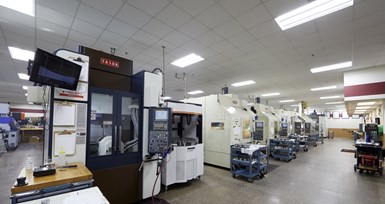
LED lighting has been installed in 99% of the Velosity facilities.
In today’s business landscape, Hemink concludes, “ESG is not just a buzzword; it is a strategic imperative.” Companies embracing ESG as a fundamental part of their operations and culture can gain a significant advantage, benefiting the environment and society, and contributing to cost savings and talent retention.
Related Content
Making Quick and Easy Kaizen Work for Your Shop
Within each person is unlimited creative potential to improve shop operations.
Read MoreWomen Impacting Moldmaking
Honoring female makers, innovators and leaders who are influencing our industry's future.
Read MoreTackling a Mold Designer Shortage
Survey findings reveal a shortage of skilled mold designers and engineers in the moldmaking community, calling for intervention through educational programs and exploration of training alternatives while seeking input from those who have addressed the issue successfully.
Read MoreFrom Injection Mold Venting to Runnerless Micro Molds: MMT's Top-Viewed June Content
The MoldMaking Technology team has compiled a list of the top-viewed June content based on analytics. This month, we covered an array of topics including injection mold venting, business strategies and runnerless micro molds. Take a look at what you might have missed!
Read MoreRead Next
MMT Chats: Common Sense Sustainability Initiatives
Sustainability can be as easy as recognizing the initiatives you already have in place for what their sustainability benefits are and putting numbers behind them, according to Kelly Santini, a passionate safety and sustainability advocate. Here, she chats with MoldMaking Technology Editorial Director Christina Fuges. This episode is brought to you by ISCAR with New Ideas for Machining Intelligently.
Read MoreCustom Mold & Design Chases Complex Mold and Production Part Projects with Top-of-the-Line Five-Axis, Screw, Mill/Turn, Additive and Molding Machines
Unique business model—with an eye on complex projects and an arsenal of machine technology to meet the required accuracy levels—raises the bar in mold and machined component manufacturing.
Read MoreMMT Chats: Maintaining an Arsenal of Technology for Tight-Tolerance Work
Five-axis machining, hybrid AM, automation, rebranding and legacy. Lester Jones, Executive Vice President of Custom Mold & Design (CMD) tackles all these topics with MoldMaking Technology Editorial Director Christina Fuges. This episode is brought to you by ISCAR with New Ideas for Machining Intelligently.
Read More



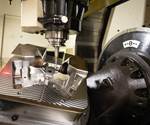




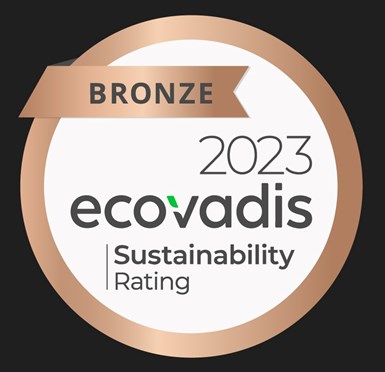
.jpg;maxWidth=300;quality=90)













.png;maxWidth=300;quality=90)


